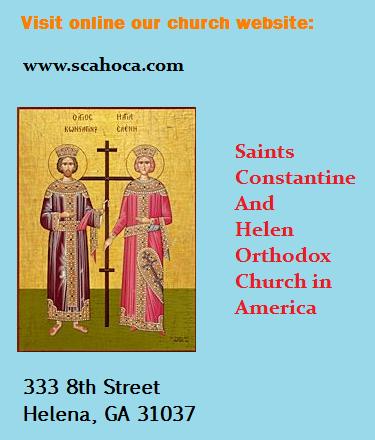The next sin I wish to deal with is sloth. Sloth is the absence of diligence. It is the absence of attentiveness, effort, and industry. There is spiritual sloth and there is physical sloth. Both are sins.


The man who works hard, but never has time for God or church is slothful in his spiritual life. He is lazy, but in a different way from the man who refuses to work. A man can be one who prays, but makes excuses for why he should not work. He might say that he needs to devote himself to spiritual things, which, of course, is true. Such a man is simply trying to justify his slothfulness and is also failing spiritually.
God created man to work. In Genesis, after God had created everything but man, it says regarding the Garden of Eden:
There was not a man to cultivate it. (Gen. 2:5, LXX)
After God created man, He put man in the garden "to cultivate and keep it." (Gen. 2:15, LXX) In Isaiah, there is a prophecy of the afterlife — life in God's kingdom after the general resurrection from the dead. In this prophecy, it says:
They shall build houses, and themselves shall dwell in them; and they shall plant vineyards, and themselves shall eat the fruit thereof. (Isaiah 65:21, LXX)
Further on, it says:
They shall by no means build, and others inhabit; and they shall by no means plant, and others eat: for as the days of the Tree of Life shall be the days of My people, they shall long enjoy the fruits of their labours. (Isaiah 65:22, LXX)
There is this connection between man and the ground. According to Genesis, God created man from the dust of the earth. Man, therefore, must till the soil and grow things. This connection between man and the earth will continue on into the afterlife according to the prophecy in Isaiah. Man will plant vineyards. I think that man will plant other things besides grapes, too.
There is also this connection between man and building construction. Jesus Christ, the Last Adam, was the stepson of a carpenter. (I Cor. 15:45; St. Matt. 13:55) He built houses. According to the prophecy in Isaiah, man will continue to build houses and live in them.
So, man was created for physical work and will continue to work physically after his body has been resurrected from the ground in which it was buried.
St. Evagrios the Solitary said that we are supposed to do physical work for two reasons: to not be a burden to others and to have something so that we can give to those in need. He wrote:
Provide yourself with such work for your hands as can be done, if possible, both during the day and at night, so that you are not a burden to anyone, and indeed can give to others, as Paul the Apostle advises. ("Outline Teaching on Asceticism and Stillness in the Solitary Life," by St. Evagrios the Solitary, The Philokalia, vol. 1, p. 35)
St. Paul wrote:
For you remember, brethren, our labor and toil; for laboring night and day, that we might not be a burden to any of you, we preached to you the gospel of God. (I Thess. 2:9, NKJV)
He said that we should follow his example as he followed Christ's example.
Imitate me, just as I also imitate Christ. (I Cor. 11:1, NKJV)
So, one reason for working is to not be a burden to anyone as St. Paul taught in this passage from I Thessalonians. If we obey the apostle's command to imitate him, we will do the same. In his second letter to the Thessalonian Christians, he told them:
For you yourselves know how you ought to follow us, for we were not disorderly among you; nor did we eat anyone’s bread free of charge, but worked with labor and toil night and day, that we might not be a burden to any of you, not because we do not have authority, but to make ourselves an example of how you should follow us. For even when we were with you, we commanded you this: If anyone will not work, neither shall he eat. (II Thess. 3:7-10, NKJV)
St. Paul also wrote:
Let him who stole steal no longer, but rather let him labor, working with his hands what is good, that he may have something to give him who has need. (Eph. 4:28, NKJV)
This is the other reason the apostle gives for working: "to have something to give him who has need." He also said in this verse, "working with his hands what is good." So, we are to be employed doing honest work.
Man was also created for spiritual work, too. In Isaiah it says that God created man for His glory. (Isaiah 43:7) In the 49th Psalm, it says:
The sacrifice of praise will glorify Me. (Psalm 49:23, LXX; Psalm 50:23, Hebrew)
Worship is one way to glorify God and one of the reasons for which God created man. We must pray and we must worship our Creator. God created man for Himself. (Col. 1:16)
There are other spiritual activities that we should be practicing. Some of them are fasting, reading the Bible, and obeying the teachings of the Bible. We need to seek to understand how the Church interprets the Bible, too. The Church is "the pillar and ground of the truth." (I Tim. 3:15)
Sometimes, laziness or sloth is caused by malnutrition. People might feel lethargic due to insufficient amounts of B vitamins and protein in their diets. From what I have read, vitamin B-12 is the energy vitamin.
Also, vegetarians need to be careful that they get enough protein from the foods they eat. Plants have incomplete proteins. Anyone who abstains from meat needs to be eating beans and grains, such as wheat, corn, and oats. Beans have part of the protein and the grains have the other part. From what I have read, rice has a lesser degree of protein than wheat, corn, and oats. That is to say, the proteins in rice are more incomplete than those in the other grains mentioned. Nuts also have incomplete proteins. They also need to be supplemented with beans and grains so that one can get complete proteins in one's diet.
To work away sloth, we need to work. We need to work so that we are not a burden to others and so that we can have something to give to those in need. God created us to do physical work and spiritual work. We need to pray, worship God, fast, read the Bible, seek to understand how the Church interprets the Bible, and obey the teachings of the Bible. We need to make sure that we eat foods with sufficient amounts of the nutrients our bodies need. Otherwise, we will feel lethargic.
Steve
Bibliography
The Philokalia, volumes 1-4, compiled by St. Nikodimos of the Holy Mountain and St. Makarios of Corinth, translated by G.E.H. Palmer, Philip Sherrard, and Kallistos Ware, Faber and Faber, London, UK, copyright 1979 The Eling Trust

